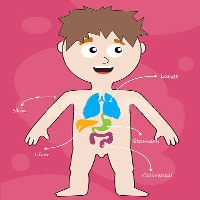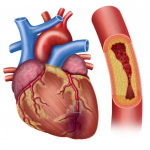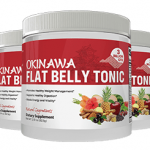The Best Diet For Fatty Liver Disease
Fact: 1 in 3 people in the United States have Fatty Liver Disease and it is about the same in other westernised countries.
Today’s hurried lifestyle very rarely enables most of us to eat healthily or exercise sufficiently on a regular basis. Over the years the Liver becomes stressed, worn out and we may not even be aware of the damage as liver disease rarely shows any symptoms.
The liver carries out a number of very important functions. It process nutrients from food, makes bile, removes toxins from the body and builds proteins.
You can see how inflammation of the liver (fatty liver disease) interferes with these important functions and can lead to poor health. Fortunately, the liver is extremely resilient and liver damage can be repaired by changing what we eat and incorporating a variety of Liver Cleansing Foods.
Fact: The number 1 cause of Non Alcoholic Fatty Liver Disease is being overweight!
We are all aware that being overweight can cause a variety of other conditions such as Diabetes, High Blood Pressure and Heart Problems to name a few.
The expression “what we don’t know won’t hurt us” in this case is totally untrue.
Below you can find out why what we eat affects our overall health.
When we eat our digestive system immediately begins to break down the food into smaller and smaller pieces. Eventually all these nutrients will enter the blood and travel to the liver through the hepatic portal system to be filtered. The liver will then process these nutrients in a variety of ways, depending on what the body needs.
It will store some of these nutrients in such a way that the body can grab them for quick energy. The rest will be used to make other important chemicals the body needs.
Gallstones
Gallstones are collections of hardened digestive fluids that collect inside the gallbladder, which also holds bile which in turn is important to digestion. Gallstones can block the bile ducts resulting in partial digestion of our food, which hinders the overall function of the liver.
It is necessary for bile to properly break down the fats and toxins before their journey to the liver. Gallstones usually occur when there is too much cholesterol (from what we eat) in the bile.
Bile Duct Obstruction.
Another digestive problem of the liver is commonly known as bile duct obstruction. This happens when a blockage in the bile duct doesn’t allow bile to release from the liver into the gallbladder, consequently bile builds up in the liver and causes a number of serious health problems.
For example, according to the University of Maryland Medical Center, the build-up of bile in the liver can cause jaundice, or yellowing of the skin.
Bad digestion is a big reason why the liver may not function properly to start with. This can be rectified be using a digestive supplement or adjusting your diet.
Let’s look at two other liver functions, Building Proteins and Removing Toxins from the Blood.
A protein is a complex chemical that is essential to every living thing. Proteins are everywhere in the body, and need to be constantly produced.
The liver has the job of building many different kinds of proteins that the body needs everyday. As an example, there are many proteins produced by the liver that are responsible for blood clotting. If the liver is damaged, sometimes the body isn’t able to clot blood effectively.
Removing Toxins from the Blood.
All of the blood in our bodies will eventually pass through the liver. As this is the filter for the blood it will pull out any bad things in the blood, such as toxins. Some of these toxins are drugs, and other things that the body has finished with, like damaged cells, proteins and old hormones.
The liver prepares all of these toxins so that they can be removed from the body. However, if the liver isn’t functioning properly these toxins obviously can’t be removed and they start to accumulate creating problems.
Hopefully you can understand that the liver is extremely important in allowing us to enjoy a good, healthy life.


 High Cholesterol levels are linked to fatty liver disease. More importantly, you are likely to accumulate fatty deposits not only in your liver but in your blood vessels. If this goes untreated, over time, these deposits will grow and form clots, making you more prone to heart attacks or strokes.
High Cholesterol levels are linked to fatty liver disease. More importantly, you are likely to accumulate fatty deposits not only in your liver but in your blood vessels. If this goes untreated, over time, these deposits will grow and form clots, making you more prone to heart attacks or strokes.